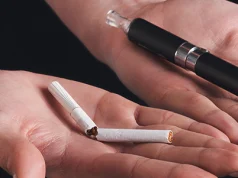The process to ban disposable vapes was initiated in December 2023 with a vote in the Assemblée nationale, followed by Senate approval, and was until last week awaiting approval by the European Union. Naturally the measure is a cause for concern as smoking cessation experts have consistently highlighted that the products’ simple and non-committal nature makes them an easy entry point into vaping for smokers looking to switch. Similarly, flavoured vapes play a key role in encouraging smokers to make this transition, as they are one of the primary motivators for those seeking to quit traditional cigarettes.
As expected, after six months of deliberation the Commission (EC) approved France’s plan to ban disposables e-cigarettes, while rejecting a proposal for a ban on refillable nicotine vapes with non-rechargeable batteries. Championed for environmental and public health reasons, the ban on disposables particularly aims to protect youth, who are seen as the primary target of marketing campaigns. To this effect, France now joins Belgium in banning disposables as of Januray 2025.
Meanwhile, the magazine 60 Million Consumers, which has been informing French consumers since the 70’s with its product tests and comparisons, highlighted that vaping is endorsed by several experts. Its September issue focused on nicotine-based products used for smoking cessation and the survey titled “To end cigarettes” assessed the effectiveness of various alternatives. Notably, experts in the field Françoise Gaudel, Olivier Smadja and Marion Adler, reiterated that vaping as a less harmful alternative for those looking to quit smoking, as nicotine is not harmful like the the tars and other chemicals found in cigarettes.
A spreading trend
In other news, another one of France’s neighbours, Switzerland is also set to ban the sale of disposables, due to environmental and health concerns. Proposed by Green Party parliamentarian Christophe Clivaz, the motion to ban was passed earlier this year by Switzerland’s House of Representatives with a vote of 122 to 63, with four abstentions. The proposed legislation would amend the Federal Act on Tobacco Products and Electronic Cigarettes to prohibit the sale of these devices.
Clivaz highlighted that ‘puff bars’ are particularly attractive to young people due to their variety of flavours and bright colors, contributing to their rising popularity. In 2022 alone, he revealed, 10 million units were imported into Switzerland, and sadly these disposable e-cigarettes often end up as litter in natural areas or as waste, leading to significant pollution and millions in cleanup costs. Additionally, Clivaz raised concerns about health, pointing out that disposables are addictive and their health effects are not yet fully understood.
Despite these arguments, Interior Minister Elisabeth Baume-Schneider and the Federal Council, Switzerland’s executive body, opposed the motion, considering the ban premature. The next step is for the Swiss Senate to decide on the fate of the ban on the products.
In 2022, 24% of Switzerland’s population smoked, down 3 percentage points from 2017, according to the Federal Statistical Office (FSO). In 1992, 30% of the population smoked. While the rate was stuck in the high 20s for years, it has recently declined. This decline is most notable among those with tertiary education. The proportion of heavy smokers (20+ cigarettes a day) has more than halved in 30 years. Vaping products and other new tobacco and nicotine products are popular among 17% of 15- to 24-year-olds, and their contribution to the decrease in local smoking rates should not be overlooked.








